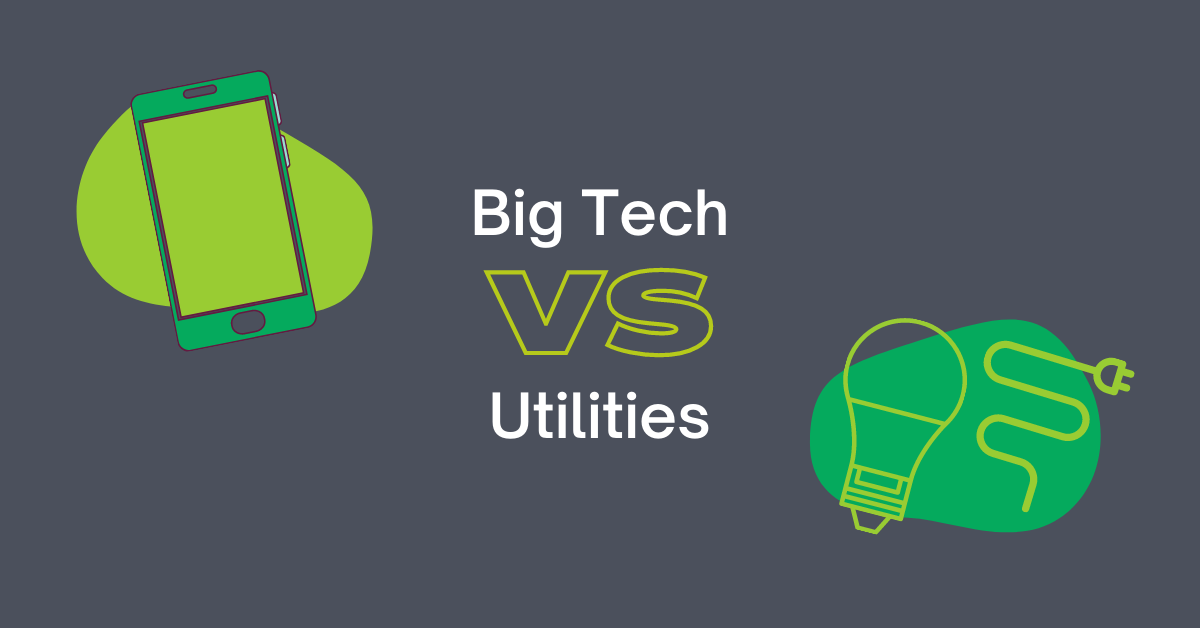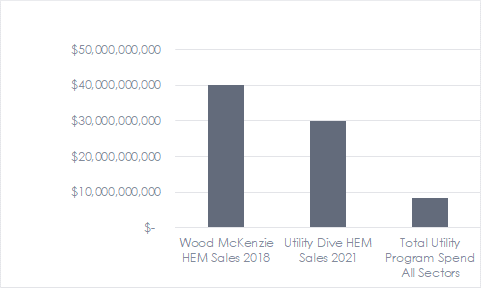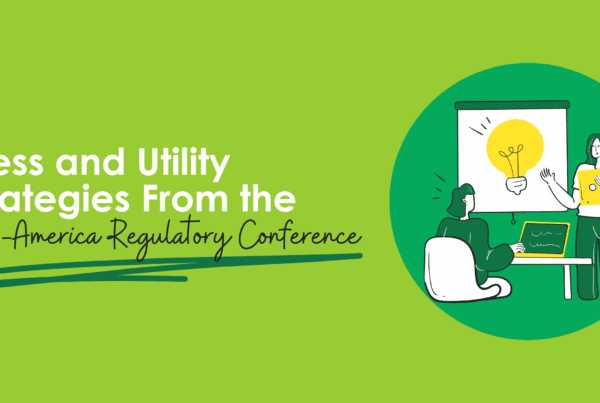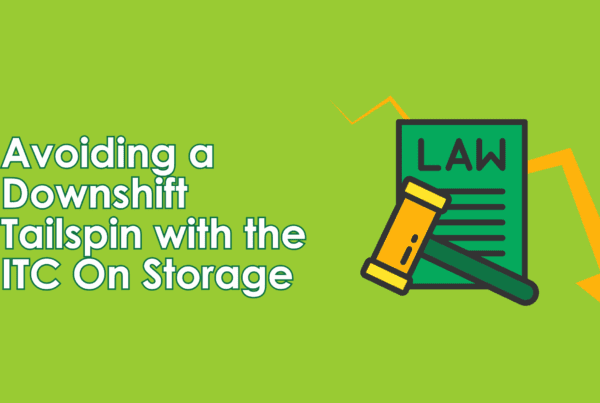
Last month, Utility Dive posted an article describing how big tech (Google, Amazon, etc.) is taking the lead for home automation and energy management. But there is still hope for utilities – they have trusted relationships with customers, Dive says.
Chasms of Risk Tolerance
There may not be a pair of industries more dissimilar than big tech and utilities. Big tech has so much cash flow they can afford to have half their products bomb: Amazon failures include Fire, Destinations, Local, Register, and Importer. I only recognize Fire and none of these other boondoggles. Too bad, so sad for Mr. Bezos and his spaceship-partner, the 18-year-old son of a hedge-fund manager.
A couple of months ago, I presented a few examples of utilities getting wild and crazy twenty years ago (real estate, telecom, offshore power generation, etc.), and those things ended very badly for many.
Chasms of Privacy Value
The most significant difference between big tech and utilities is data privacy. Tech users and the data they provide are the product for big tech. They sell the data (you). People, especially digital natives, provide all the data and information they want to tech. What could possibly go wrong? For one, people get trapped in these Hotels California (check out any time you like, but you can’t leave). How is this? Organizations use free services of some of these behemoths, and you’re screwed if you want out. I.e., they suck legions in and make it a pain for the entire group to switch to something else if there is something else.
Conversely, utilities protect customer data to a point they don’t want customers to know the utilities know how much energy the customer uses. It’s almost like a polling place. Long ago, grocery chains began rewards programs in exchange for unique shopper preferences by tracking buying patterns. This is very personal stuff. Electricity or natural gas by comparison…who cares? Why is electricity consumption more sensitive than personal hygiene preferences and consumption patterns?
Chasms of Trust?
The Dive article describes that utilities have an advantage, apparently over big tech – trust. This is the case with me for sure, well, for the most part anyway. I’m probably fooling myself by not using Facebook, Chrome and rarely signing into my Google account. Think that’s over the top? How many of those camera-blocking doohickeys do you see? You are likely to use one yourself. They’re probably still taking all my data, know where I am, and what I’m thinking every minute I’m burning oxygen. Why was I a sucker for buying Alexa and a Nest thermostat that monitor what I’m doing all the time? They should give those away for “free” too. “Alexa, what are you doing with my data?” Wow, try that out sometime. The surveillance is all for my benefit, according to Alexa Bezos.
The Wall Street Journal writes that home-energy automation emerges as a rich new source of customer data – for Amazon and Google, that is. No kidding.
Spending – We are the Small Fish
The Dive article estimates spending on home automation will be about $30 billion this year. The Wall Street Journal article quotes a Wood McKenzie estimate of $40 billion in home energy device sales in 2018. For simplicity, let’s call it home energy management (HEM) like ACEEE does. Compare this to the total spending on all efficiency sectors from 2019, per ACEEE’s state scorecard: a whopping $8.3 billion.

How is that for a bit of perspective?
Forward-thinking utilities can see the threat of becoming poles and wires providers. At the same time, tech owns the relationships with consumers. However, it is somewhat interesting that tech hasn’t assembled a broader package of offerings like solar panels and battery storage, or maybe they have. The Dive article says 80% of utility executives say their companies fail to match the level of personalization and convenience that customers receive from Amazon and Google. What do the other 20% think?
Opportunity for the Taking
All is not lost because people love to buy stuff and don’t know how to leverage it, especially regarding energy, time-varying rates, and demand charges – which is where things are headed, even for residential customers.
The Wall Street Journal article ends with, “It’s still a resource that remains untapped,” she [Wood McKenzie spokeswoman] said. “This technology is already in the home. That’s the beauty of it. The opportunity is orchestrating it.”
The silver lining is that big tech has what it wants – sales of devices and the ability to collect more data on their serfs, er, customers. It’s like a smartphone or the electronic crap in my car’s console. I don’t know how to use a quarter of their capabilities. In fact, I don’t even know how to turn the radio off in my car. I just turn the volume to zero. I have no shame.
So just like the last couple of weeks of posts about attribution, programs need to move toward content marketing, engaging, informing, and educating customers about how to use the myriad of smart home technologies – especially as it relates to coming dynamic pricing. Just because their homes are filled with devices customers barely know how to use does not mean they are free riders when they begin to leverage the devices.




